Prof. Kaspar ALTHOEFER
Queen Mary, University of London, UK
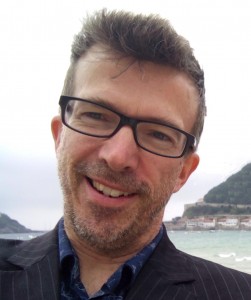
Short Bio
Professor Kaspar Althoefer is a systems engineer, leading research on Robotics at Queen Mary University of London. After graduating with a degree in Electronic Engineering from the University of Technology Aachen, Germany, and obtaining a PhD in Robot Motion Planning from Kings College London, he joined the Kings Robotics Group in 1996 as a Lecturer. Made a Senior Lecturer in 2006, he was promoted to Reader and Professor in 2009 and 2011, respectively. In April 2016, he joined Queen Mary as full Professor of Robotics Engineering.
His current research interests are in the areas of robot autonomy, soft robotics, modelling of tool-environment interaction dynamics, tactile sensing and neuro-fuzzy-based sensor signal classification with applications in robot-assisted minimally invasive surgery, rehabilitation, assistive technologies and human-robot interactions in the manufacturing environment.
Prof. Romeo GLOVNEA
University of Sussex, UK

Short Bio
Professor Glovnea is the Head of Department of Engineering and Design and Head of the Robotic and Mechatronic Systems Research Group, at the University of Sussex, United Kingdom. His main research interests are in tribology (particularly elastohydrodynamic lubrication), mechanical transmissions, contact mechanics, mechanical design and rheology. After PhD studies in his native Romania, professor Glovnea moved to Imperial College London where he worked as a senior research fellow for eight years in the Tribology Section, the Department of Mechanical Engineering. After taking his first academic position in the UK in 2005, professor Glovnea has been awarded many research grants both from governmental funding bodies and industry. Professor Glovnea has published over 80 papers in his research fields and is the recipient of the Best Paper Prize 2001 from the Journal of Engineering Tribology.
Prof. Kostas ALEXIS
Norwegian University of Science and Technology, Norway
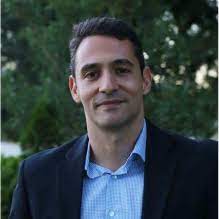
Short Bio
Prof. Dr. Kostas Alexis conducts research in the domain of resilient robotic autonomy. Through his studies he has examined the potential of autonomous systems to navigate extreme environments by presenting resourcefulness, robustness, and redundancy. His research areas include the domains of robot control, path planning, and Simultaneous Localization And Mapping, while across these disciplines a holistic approach is taken to facilitate enhanced resilient as demonstrated through field robotics. He has been the PI in major international grants such as the DARPA Subterranean Challenge and his funding portfolio includes grants from US sources (e.g., DARPA, NSF, DOE, USDA), EU (e.g., Horizon 2020 programs), as well as the Norwegian Research Council. Recently he led Team CERBERUS in winning the DARPA Subterranean Challenge.
Prof. Hajime ASAMA
The University of Tokyo, Japan
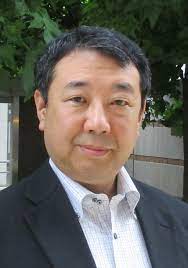
Short Bio
Professor Hajime Asama received his B. S., M. S., and Dr. Eng in Engineering from the University of Tokyo, in 1982, 1984 and 1989, respectively. He was Research Associate, Research Scientist, and Senior Research Scientist in RIKEN (The Institute of Physical and Chemical Research, Japan) from 1986 to 2002. He became a professor of RACE (Research into Artifacts, Center for Engineering), the University of Tokyo in 2002, and a professor of School of Engineering, the University of Tokyo in 2009.
He is the president of the International Federation of Automatic Control (IFAC) and vice-president of Robotics Society of Japan. He was an AdCom member of IEEE Robotics and Automation Society from 2007 to 2009, an editor of Journal of International Journal of Intelligent Service Robotics, Journal of Field Robotics, Journal of Robotics and Autonomous Systems.
His main research interests are distributed autonomous robotic systems, ambient intelligence, service engineering, and Mobiligence.
Mr. Rich WALKER
The Shadow Robot Company, London, UK

Short Bio
Rich Walker is the managing director of the Shadow Robot Company.
Rich is on the Innovate UK "Robotics and Autonomous Systems" SIG Advisory Board, as well as several EPSRC robotics advisory boards and management committees.
He is also one of the three SME Directors of the EuRobotics association. The Shadow Robot Company is Britain’s longest-running robot company (winners of the Queen’s Awards 2019 under Innovation) and is experts at grasping and manipulation for robotic hands. Shadow has worked with companies and researchers all over the world, looking at new ways to apply robotics technologies to solve real-world problems. They develop and sell the DEXTEROUS HAND, recently used to advance research into AI (having won the AIconics Award for best innovation in AI hardware 2019), and the MODULAR GRASPER, an essential tool for supporting industry 4.0.
The company is also a pioneer in the fast-developing fields of teleoperation and telepresence with their tactile telerobot, where the Shadow Hand is combined with sensors and controlled via a haptic glove for touch feedback. Shadow’s technology is designed to take human operators out of harmful situations – such as nuclear decommissioning and bomb disposal.
Dr. Robert SKILTON
Remote Applications in Challenging
Environments (RACE), UK

Short Bio
Rob Skilton is Head of Research at RACE, the robotics division within the UK Atomic Energy Authority, where he leads collaborative research with industry and academia on Robotics and Autonomous systems in nuclear fusion and decommissioning. Rob has been working in nuclear robotics for over 10 years and has been deeply involved in UK and international fusion robotics programmes as well as UK and international decommissioning research programmes. Rob was responsible for leading various activities within the Robotics and AI for Nuclear (RAIN) Hub as well as developing and leading technical aspects of the LongOps programme, a £12M UK-Japan collaboration on digital tools to de-risk robotic decommissioning operations. Rob is currently leading on robotics within the UK Magnetic Fusion Research programme.
Dr. Iain DARBY
Nuclear Decommissioning Authority (NDA) / Dounreay Site Restoration Ltd (DSRL)
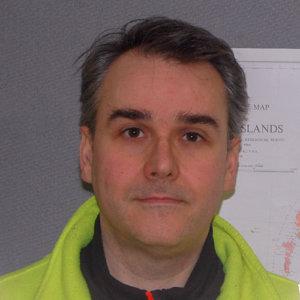
Short Bio
Iain is a Physicist & Environmental Specialist in Nuclear Decommissioning & Environmental Remediation. He holds a PhD in Nuclear Physics from the University of Liverpool and held academic appointments in Europe and the United States before joining the IAEA from 2011-2018 as an instrumentation specialist, departing as Head of the Nuclear Science & Instrumentation Laboratory.
He is currently based in Scotland where he holds an Honorary Fellowship at the University of Glasgow, sits on the Editorial Board of IoP SciNotes and works full time on UK nuclear decommissioning and remediation projects based at the Dounreay Site where he is also co-chair of the NDA Nuclear Waste & Decommissioning Research Forum.
He is a chartered physicist and member of the Institute of Electrical and Electronic Engineers, UK Institute of Physics and UK Society for Radiological Protection.
Prof. Fabio BONSIGNORIO
ERA Chair Holder, Laboratory for Autonomous Systems and Mobile Robotics (LAMOR), University of Zagreb
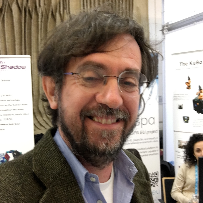
Short Bio
Professor Fabio Bonsignorio is the ERA Chair in AI for Robotics and head of the AIFORS Research Group assigned to the Laboratory for Autonomous Systems and Mobile Robotics (LAMOR) at FER at the University of Zagreb.
He is also CEO and Founder of Heron Robots (advanced robotic solutions).
He is a Founding Director of euRobotics aisbl, the private part of SPARC, and now part of ADRA. He is a past elected member of the Research Board of Directors of SPARC. He has pioneered and introduced the topic of Reproducible Research and Benchmarking in Robotics and AI, where he is one of the leading experts, if not the leading one. He is a pioneer in the applications of Blockchain technologies in Robotics.
Fabio is a senior member and a Distinguished Lecturer of IEEE/RAS. He coordinated the EURON Special Interest Group on Good Experimental Methodology and Benchmarking in Robotics and was a board member of EURON III. He is a member of the George Giralt PhD Award jury. He is the coordinator of the euRobotics Topic Group on Experiment Replication, Benchmarking, Challenges, and Competitions and is co-chair of the IEEE TC - Pebras. He participated in the design and launch of the euCognition society.







